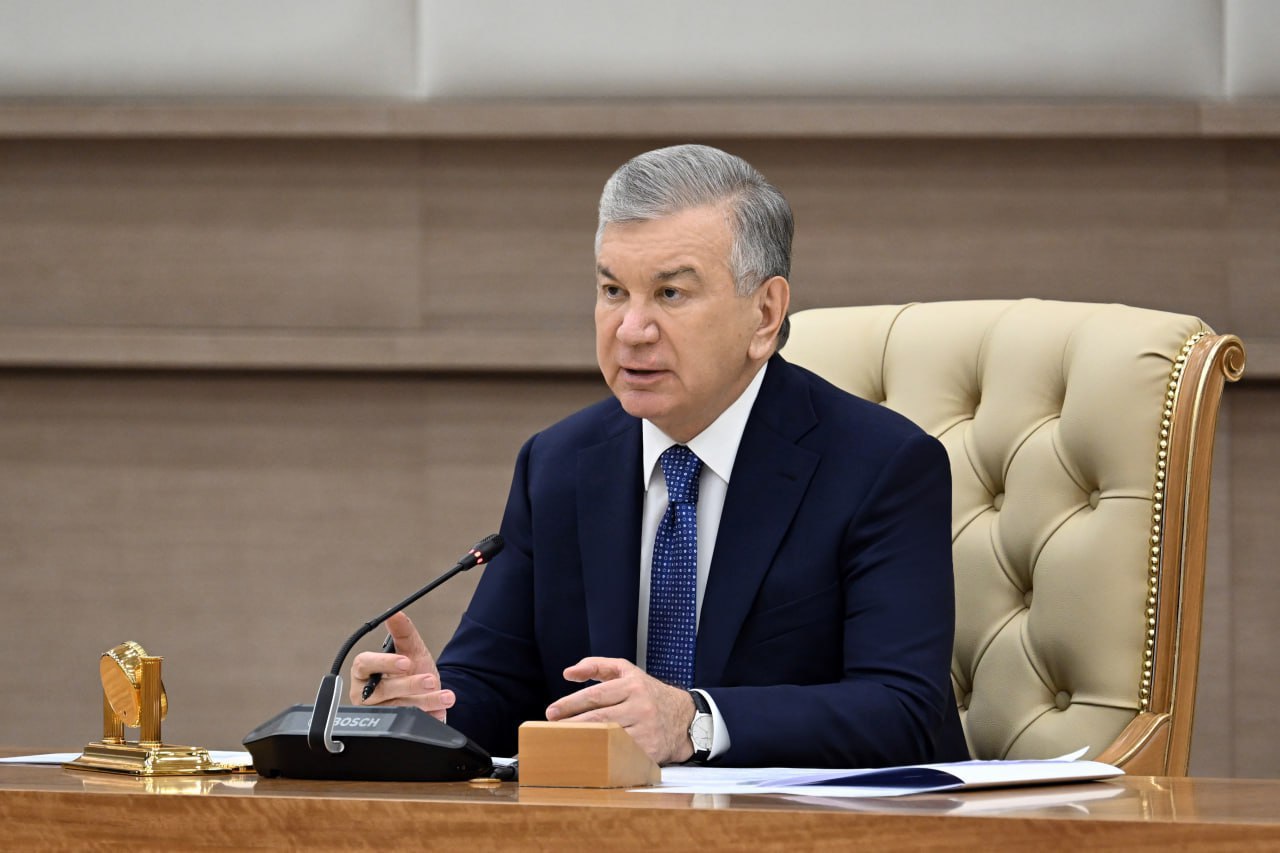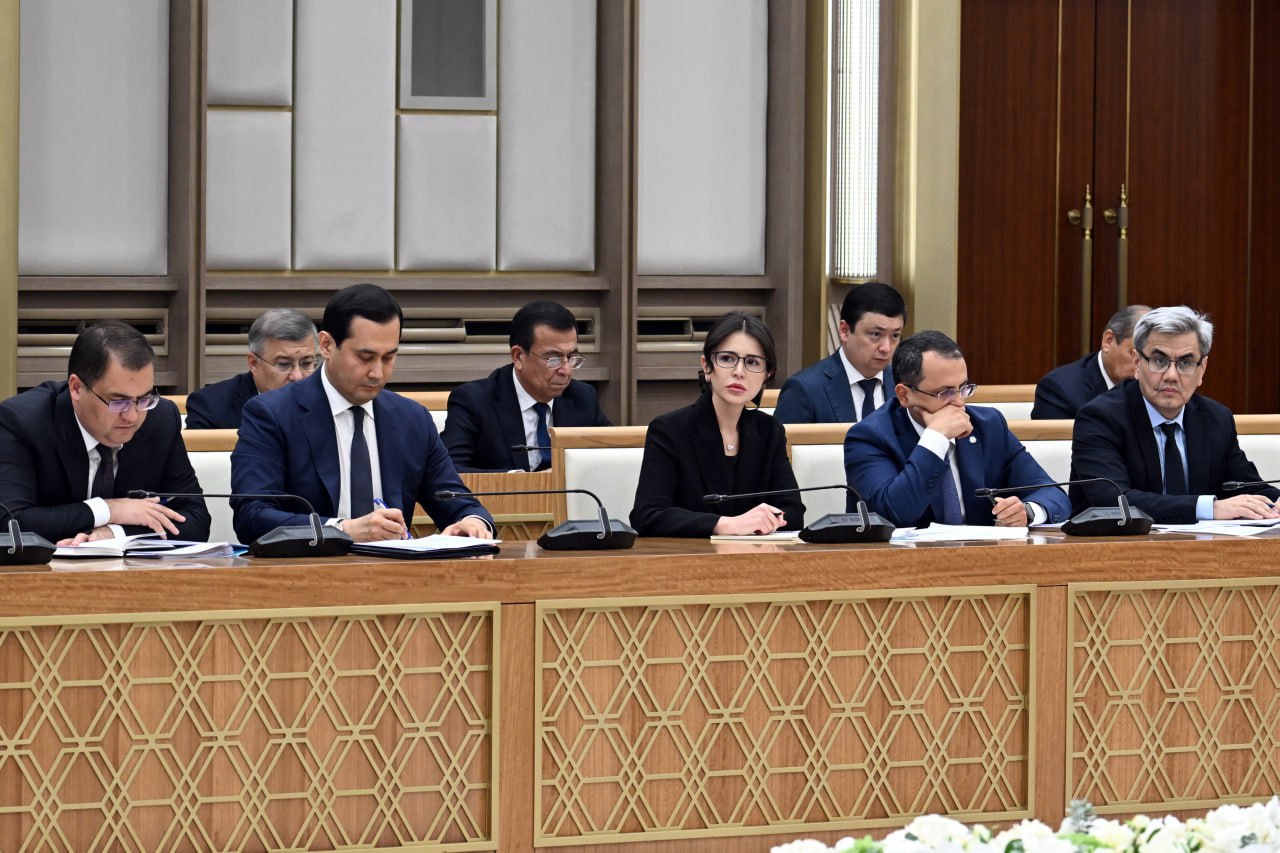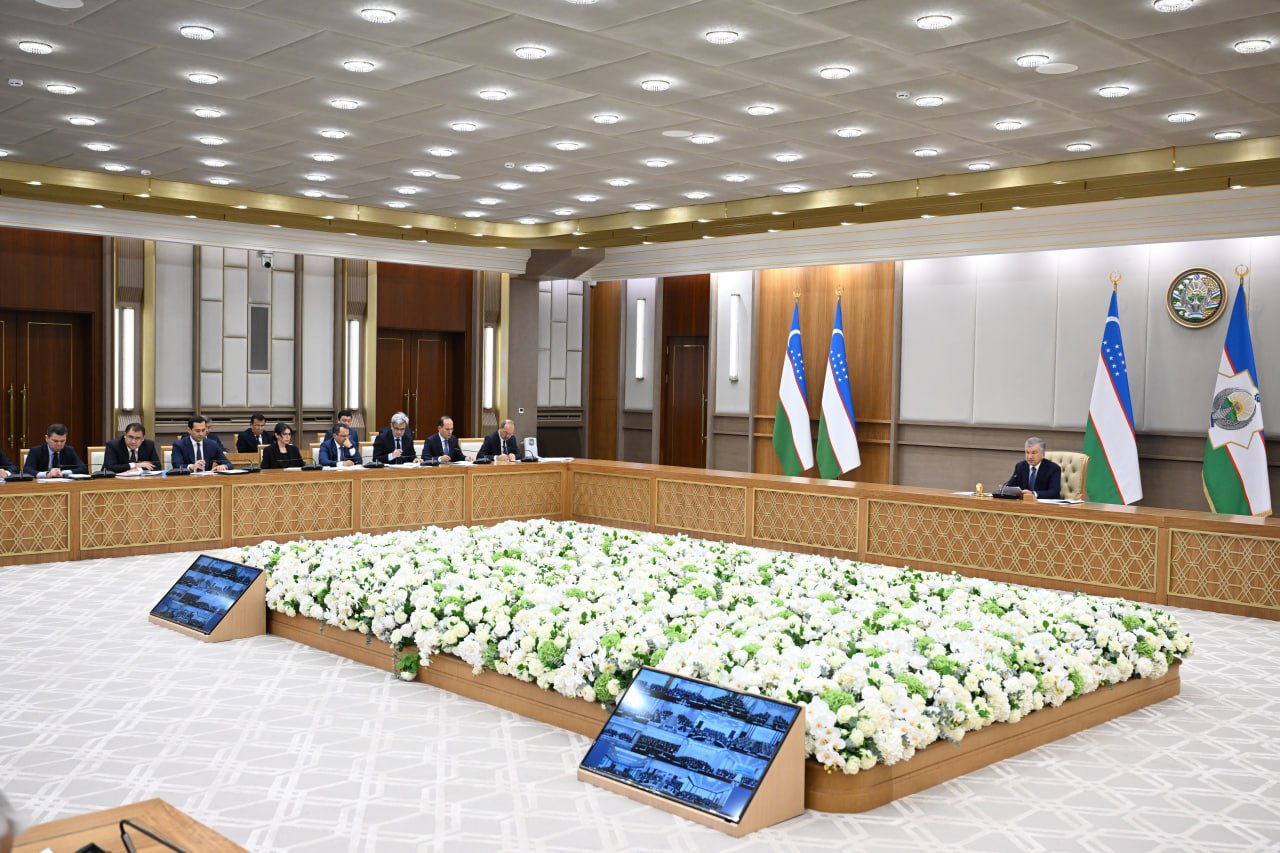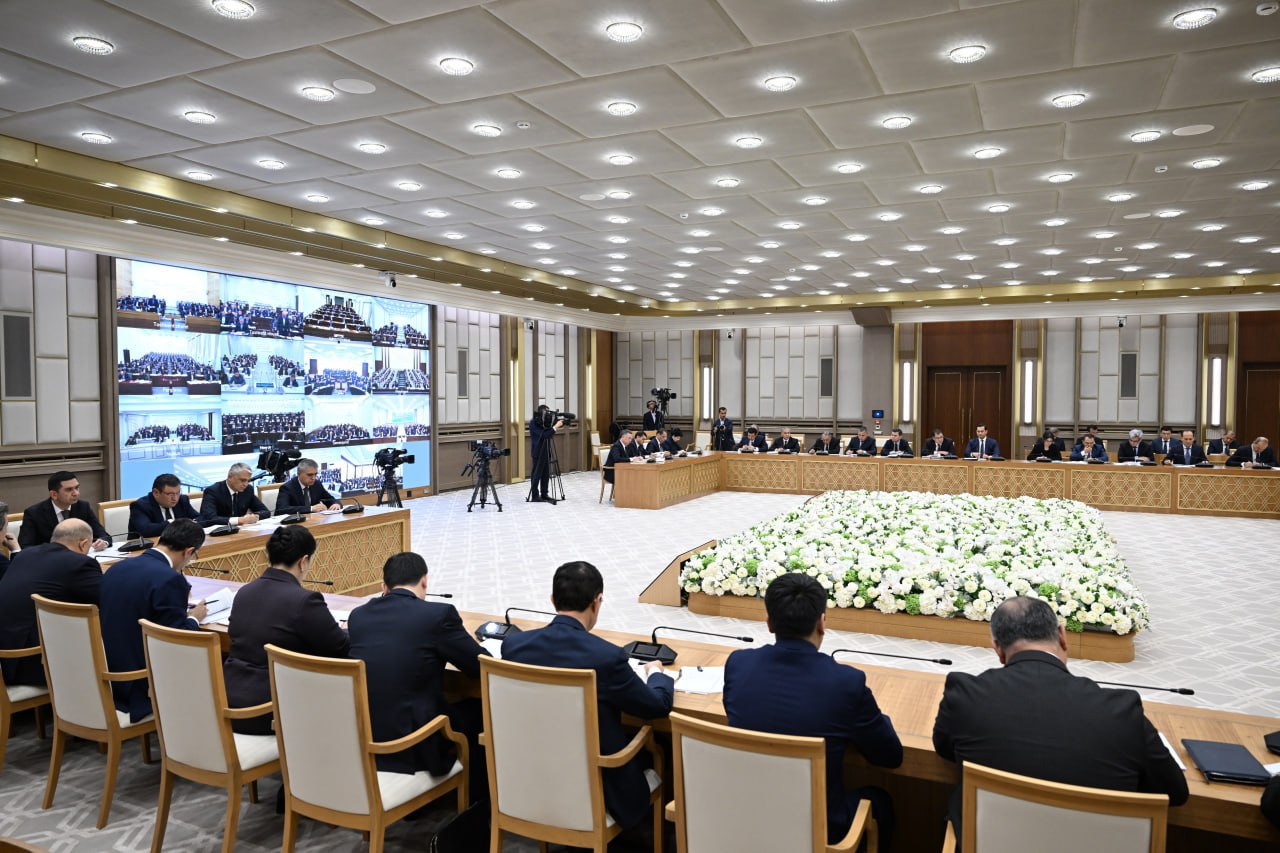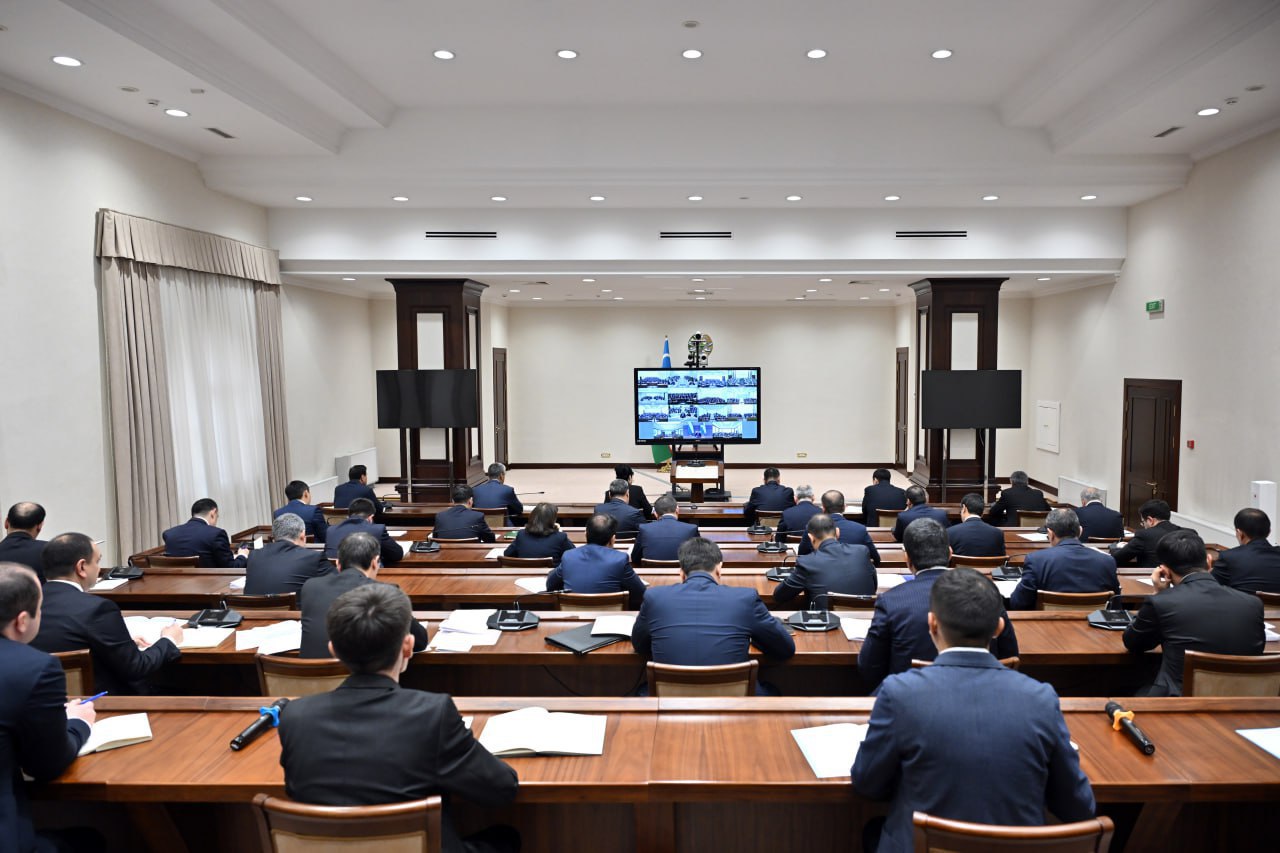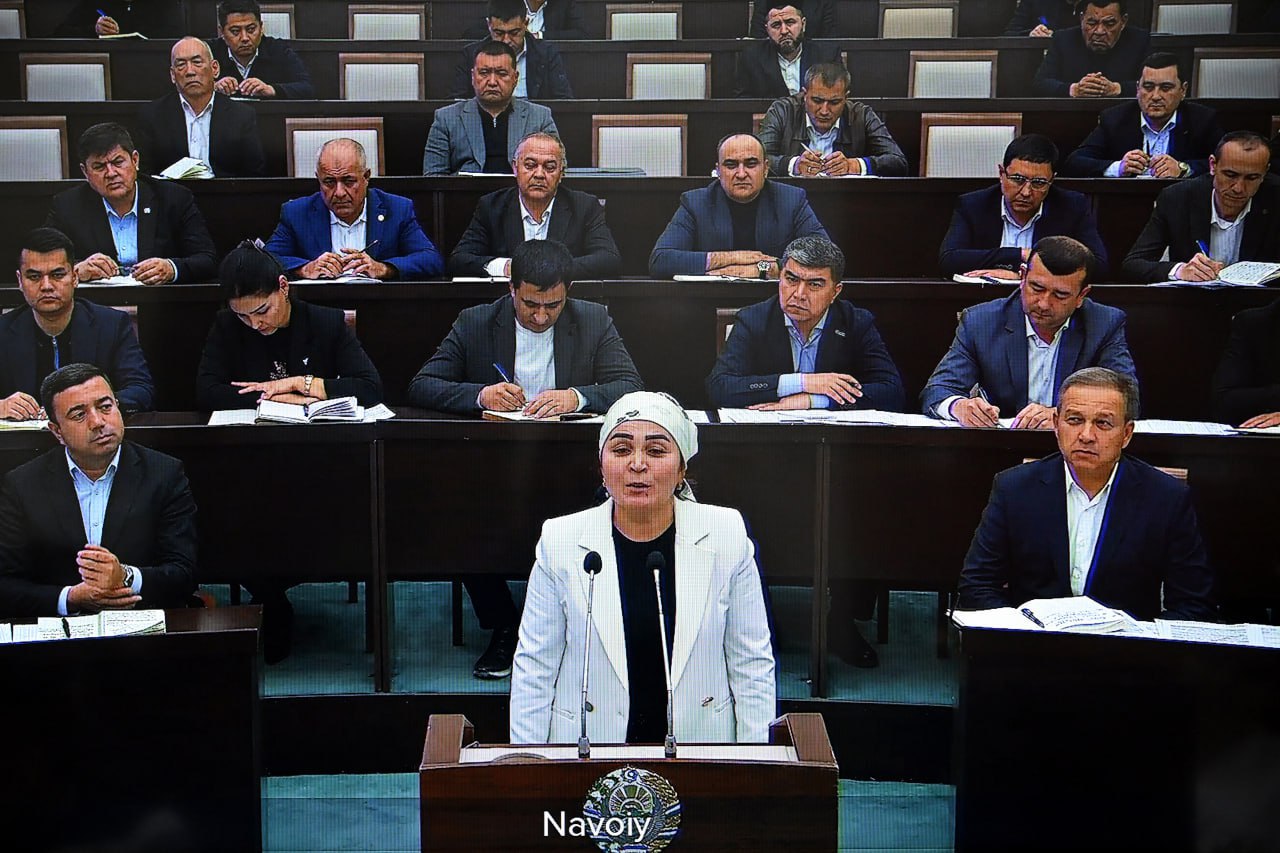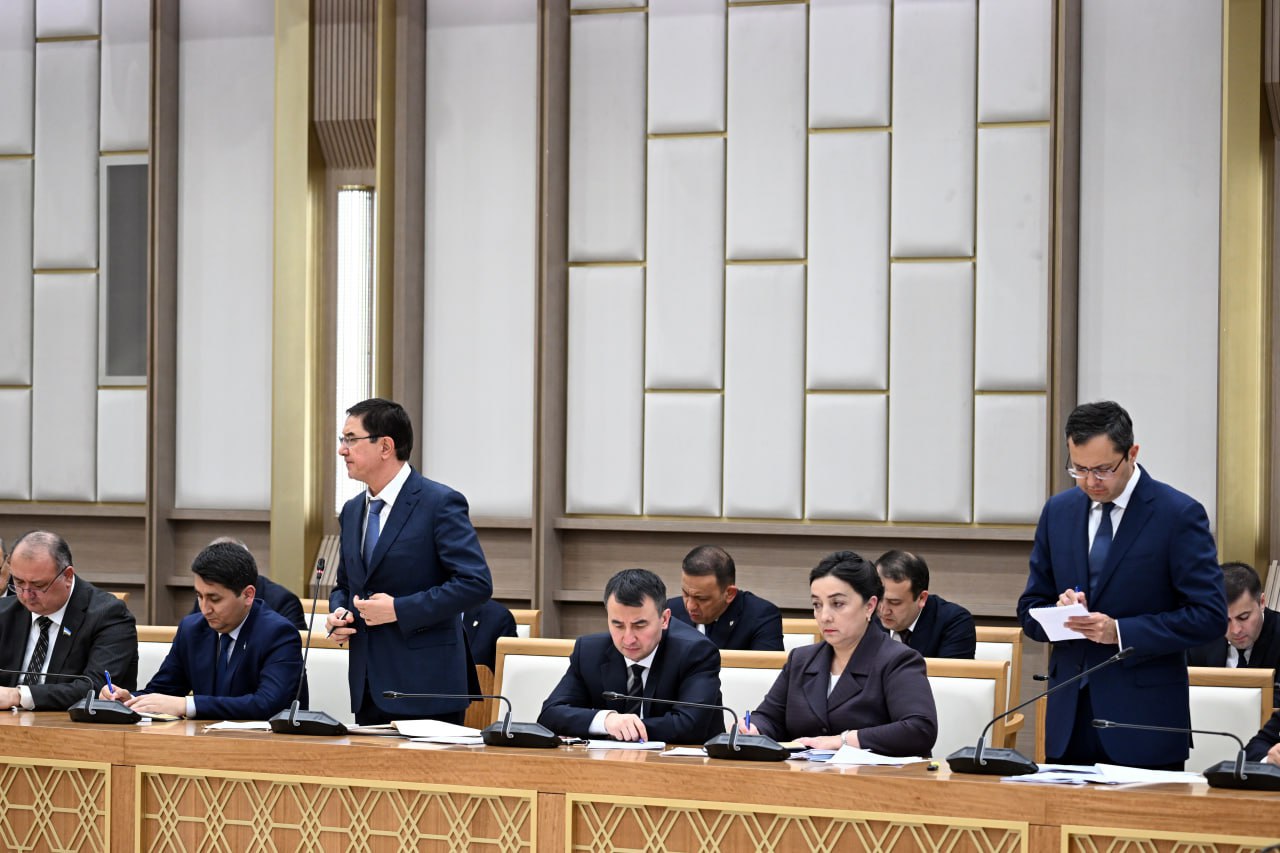
19.11.2025
On November 19, a meeting was held under the chairmanship of President Shavkat Mirziyoyev dedicated to the work results and priority objectives for next year on poverty reduction and ensuring employment of the population.
As noted, over the past period, the material and technical capabilities of regional and district governors and their staff have been significantly improved so that they can properly organize this work at the grassroots level, identify new initiatives by visiting each mahalla, and thereby improve people's lives.
Since the beginning of this year, the unemployment rate has fallen to 4.9 percent (last year it was 5.5 percent). In particular, in the cities of Bukhara, Kagan, Navoi, Zarafshan, Gazgan, Samarkand, and Shirin, unemployment has fallen below 4 percent, approaching the natural unemployment rate for the first time.
A total of 302 thousand families in need have been lifted out of poverty. The poverty rate is expected to fall to 6 percent by the end of the year (from 8.9 percent last year).
In Havast, Mirzaabad, Akalty, Dustlik, Pakhtakor, Farish, Bustan, Vabkent, Mirishkor, Mingbulak, Uzun, and Pskent districts, the number of low-income families has decreased 4.5 times. The 105 thousand families that were previously in a difficult situation began to receive income.
This year, for the first time, 1,435 mahallas became “poverty-free territories.”
At the same time, criticism has been levelled at the fact that some district hokims, despite having significant resources and funds at their disposal, have neglected this work and failed to provide people with ready-made projects that match their capabilities.
In this regard, a decision was made to dismiss the hokim of Denau district and his first deputy, the hokim of the Chirakchi district and his first deputy, and to take appropriate measures in accordance with established procedure in relation to 20 other district hokims.
In total, since the beginning of the year, 261 officials have been dismissed for irresponsible implementation of plans to reduce poverty and ensure employment, and disciplinary measures have been taken against another 492 individuals.
It was emphasized that next year, the main task of those responsible will be to reduce poverty and unemployment to less than 4.5 percent. To this end, 450 trillion soums in loans will be directed to the economy, of which 140 trillion soums are earmarked for small and medium-sized projects at the mahalla level.
The Head of our state has defined the main directions for organizing work in this area.
First, ensuring employment and income for the population through the construction sector.
Next year, the country plans to implement investment projects worth 675 trillion soums, of which 380 trillion soums will be allocated to the construction sector. There are plans to build multi-storey buildings with 140 thousand apartments.
It was noted that each hokim, by effectively using these opportunities, can provide employment for at least 20-25 thousand people directly in the construction sector and another 10 thousand people through the created infrastructure.
The main innovation is that, for the first time in 2026, 20 trillion soums intended for the development of mahalla infrastructure will be allocated directly to regional budgets.
The second area is an increase in the number of projects in the service sector to ensure employment for the population.
It was emphasized that this sector ensures high growth rates in our country. At the same time, it was pointed out that regional and district hokims are not fully utilizing the potential of tourism, which has a significant impact on the dynamics of the service sector, to create jobs and increase the income of the population.
By improving the infrastructure of 150 mahallas with high tourism potential, it is possible to increase the volume of services to 10 trillion soums and employ 45 thousand people in the trade and service sectors.
Thus, next year, each of the 150 mahallas will be allocated between 3 and 5 billion soums for infrastructure development. District banks will provide preferential loans of up to 150 million soums for the construction of guest houses in these settlements.
The importance of increasing the income of families in border and enclave areas by repairing roads leading to them and building guest houses, recreation centers, trade and service facilities there was emphasized. It was instructed to allocate 1 trillion soums for the implementation of projects for the construction of recreation and service facilities in these areas.
In addition, 500 areas have been selected for the development of services along rivers and roads. District banks will provide loans of up to 1 billion soums for implementing projects in such locations, on the condition that at least five permanent jobs are created.
This year alone, 255 round-the-clock streets have been put into operation. They now host 11 thousand service facilities, providing employment for about 27 thousand residents. Next year, another 200 such streets are planned.
Each street was allocated up to 4 billion soums for the hokims, provided they develop a clear “road map” and begin work within a month.
Enterprises that have created their own brands in public catering, trade, and services intend to open 100–150 branches across the country.
Regional hokims have been instructed to support national brands in this effort. If these companies are willing to independently train employees for newly opened branches, the training expenses will be covered by the Employment Fund. To support brands wishing to expand their branch networks, new financial instruments will be introduced, with 500 billion soums allocated for this purpose in 2026.
The third area is increasing the number of permanent jobs through the implementation of industrial projects.
Next year, regional enterprises plan to produce $52 billion worth of industrial products. It was noted that responsible officials must implement 3.5 thousand projects worth $22 billion in local industrial sectors, which will allow to create 130 thousand permanent jobs.
Currently, 400 mahallas specialize in furniture production, crafts, and sewing. If entrepreneurs are provided with additional space, each could employ 5–10 more people.
In this regard, district hokims have been instructed to open 50 industrial microcenters next year in such specialized mahallas, ensuring employment for 10 thousand people. An amount of 200 billion soums will be allocated for the infrastructure of these centers.
The fourth area is increasing the population’s income through agriculture.
As part of poverty reduction efforts, 232 thousand hectares of land were allocated to the population, providing a source of income for 770 thousand people. However, for one-third of them, income remains low due to lack of experience, quality seeds, and difficulties in selling products on the market.
In this regard, it has been instructed to expand the experience of the Garden plots school of the Termez district to all regions by organizing at least five such schools in each area, to teach people renting land how to cultivate high-yield crops. Export cooperatives will be created to guarantee the sale of products grown on leased land.
The fifth area is strengthening social protection for the families in need.
Starting from the new year, the “Equal Opportunities – Inclusive Employment” project will be implemented, with plans to employ 40 thousand people with disabilities in its framework. They will be provided with an interest-free loan of up to 30 million soums from the Employment Fund.
For families at risk of falling back into poverty, social support and benefits will be maintained. For six months, they will continue to receive financial assistance and child allowances, have expenses for kindergartens and extracurricular activities compensated, and receive 110 types of social services and support over 12 months, including referrals for medical treatment.
In addition, groups of families at high risk of poverty due to difficult life circumstances will be identified in advance, followed by the provision of targeted assistance.
Issues of employment legalization were also addressed.
- We are starting to implement major goals with concrete financing. If ministers, their territorial administrations and departments, regional and district hokims, and, most importantly, the mahalla “seven” do not actively engage in this work, there will be no changes, - said the Head of our state.
The Prime Minister was instructed to determine the objectives set during the meeting as key performance indicators (KPI) for the ministers and hokims for 2026.
Reports of the heads of regions and sectors, as well as opinions of the entrepreneurs were also heard during the meeting.

